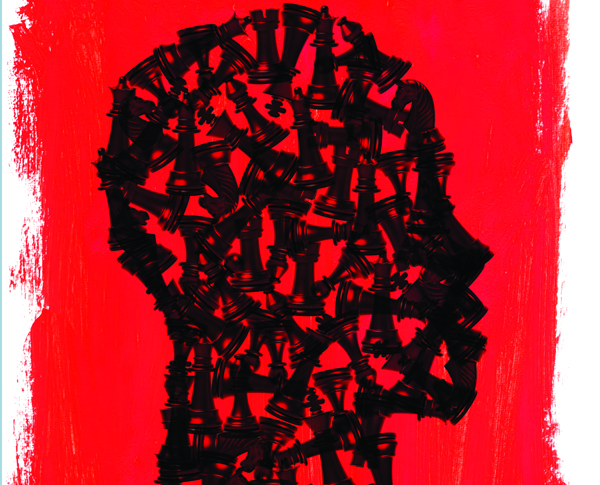
For those who took pride in having a sharp memory, a sudden deterioration in their recall capacity, as insignificant as having trouble remembering names, movie titles and misplaced car keys, can be very disturbing. Sudden memory lapses are common in people and as we get older our recalling skills do erode. According to specialists and neurologists the area of our brain responsible for building memory loses five per cent of its nerve cells with each passing decade and hence a person’s mental ability that peaked early in adulthood, invariably goes down.
But over the last few decades, researchers have also found that with a little effort, anyone can boost their power of recollection. While there are an array of scientifically proven brain-sharpening techniques, playing mind games like crosswords, chess, Sudoku, and other puzzles are said to help in substantial ways. Marcel Danesi, author of the book Extreme Brain Workout, says that playing these games “activate synapses in the whole brain, including the memory centres. Research too indicates that these mind games exercises one’s mind and they are essential in keeping the brain active and healthy. Studies have also shown that remaining engaged in cognitive activities will help to prevent memory loss.
Adults with hobbies that exercise their brains — such as reading, jigsaw puzzles or chess — are 2.50 times less likely to have Alzheimer’s disease, while leisure limited to TV watching may increase the risk, a study has pointed out.
Experts claim that that one hour of increased brain activity via thinking a lot or experiencing new stimuli can make you smarter, more energetic, more creative, more sociable, and more open to new experiences and ways of thinking. According to the latest reports studies have begun to provide the first rigorous evidence that some brain-training exercises might have lasting effects on people — particularly the elderly — who use them. World chess champion Viswanathan Anand had said in one of his interviews that ‘physical exercise help a chess player to increase brain’s ability to concentrate, focus, visualise, and plan ahead’. Working through mind games enhances their mathematical minds too.
Games of strategy and logic have mathematical foundations and encourage players to think about various mathematical concepts including patterns, abstraction, sequencing, and combinations. “Often, people play these types of games and do not even realise they are developing and refining their math skills,” say experts. Like chess bridge is one of the few games that stimulates both the left and right sides of our brain.
Every time you play, you use your skills in communication, logic, math, memory, visualisation, and psychology. It’s a unique type of mental workout that is both relaxing and invigorating, and that can’t be duplicated by other leisure or work-related activities.
Researchers even estimate that tackling regular crossword puzzles could add years to a person’s life. A number of experiments have shown that when old people do crossword puzzles, it regulates their immune system better than if they had little mental stimulation.
Recently Sudoku has taken the world by storm. It’s all over the newspapers, spread across the Internet, and enjoys phenomenal popularity.
Experts also say that Sudoku can be a teaching aid to children. It can assist them in practising numerical patterns and mathematical puzzles and help them think logically. Sudoku is bound to make kids interested in maths, even those who run away from the subject, as it is very enjoyable,. The benefits of doing Sudoku is it sharpens your thinking and improve your concentration.
So next time you see one of those mind games, give it a go. Your brain might just thank you.